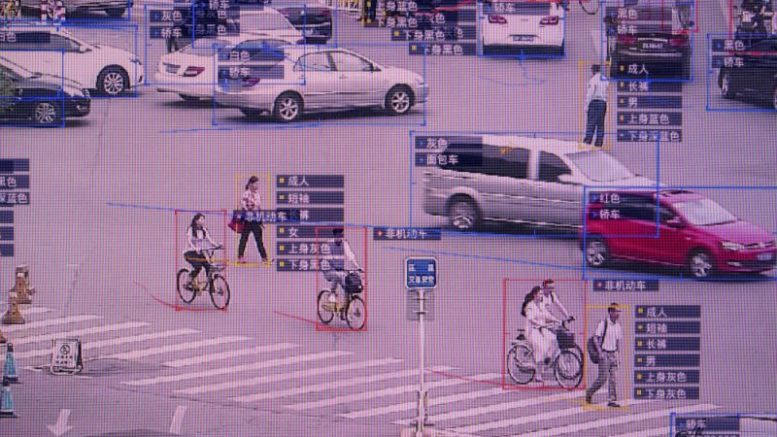American Professor Designed Dystopian Surveillance System for China

A star University of Maryland (UMD) professor built a machine-learning software “useful for surveillance” as part of a six-figure research grant from Chinese tech giant Alibaba, raising concerns that an American public university directly contributed to China’s surveillance state.
Alibaba provided $125,000 in funding to a research team led by Dinesh Manocha, a professor of computer science at UMD College Park, to develop an urban surveillance software that can “classify the personality of each pedestrian and identify other biometric features,” according to research grant documents obtained via public records request.
“These capabilities will be used to predict the behavior of each pedestrian and are useful for surveillance,” the document read.
Alibaba’s surveillance products gained notoriety in 2020, when researchers found that one of its products, Cloud Shield, could recognize and classify the faces of Uyghur people. Human rights group believe these high-tech surveillance tools play a major role in the ongoing Uyghur genocide in Xinjiang.
“The bottom line is that Alibaba financed U.S. academic research that was tailor-made for China’s surveillance state,” Ryan Fedasiuk, an associate fellow at the Center for New American Security, said in an email to The Daily Beast.
Manocha is a decorated scholar in the AI and robotics field who has earned awards and accolades from Google, IBM, and many others. His star status brings rewards: Maryland taxpayers paid $355,000 in salaries to the professor in 2021, according to government watchdog Open the Books. The U.S. military also provides lavish funding for the professor’s research, signing a $68 million agreement with Manocha’s lab to research military applications of AI technologies.
But Maryland taxpayers and the U.S. military are not the only ones funding Manocha’s research. In January 2018, the University of Maryland and Alibaba signed an 18-month research contract funding Manocha’s research team.
In the grant document obtained by The Daily Beast, Manocha’s team pledged to “work closely with Alibaba researchers” to develop an urban surveillance software that can identify pedestrians based on their unique gait signatures. The algorithm would then use the gait signatures to classify pedestrians as “aggressive,” “shy,” “impulsive,” and other personalities.
The grant required UMD researchers to test the algorithm on videos provided by Alibaba and present their findings in person at Alibaba labs in China. The scholars also had to provide the C++ codebase for the software and the raw dataset as deliverables to Alibaba.
The software’s “clear implication is to proactively predict demonstrations and protests so that they might be quelled,” Fedasiuk told The Daily Beast. “Given what we know now about China’s architecture of repression in Xinjiang and other regions, it is clear Dr. Manocha should not have pitched this project, and administrators at UMD should not have signed off on it.”
Source: technocracy.news
Be the first to Comment.
Blogger's note: subterrnews.blogspot.com does not send cookies, or collect any information on those using the blog. However, the blogspot is on google, and google may collect information, and send cookies. Many of the links that we connect to do not send out cookies or collect information, but some do. You are keying in to this blog, and you have agreed to this.
The views of the author do not necessarily represent the opinions of this blog. They are the views, and opinions of the author(s) of the article.
0 comments:
Post a Comment